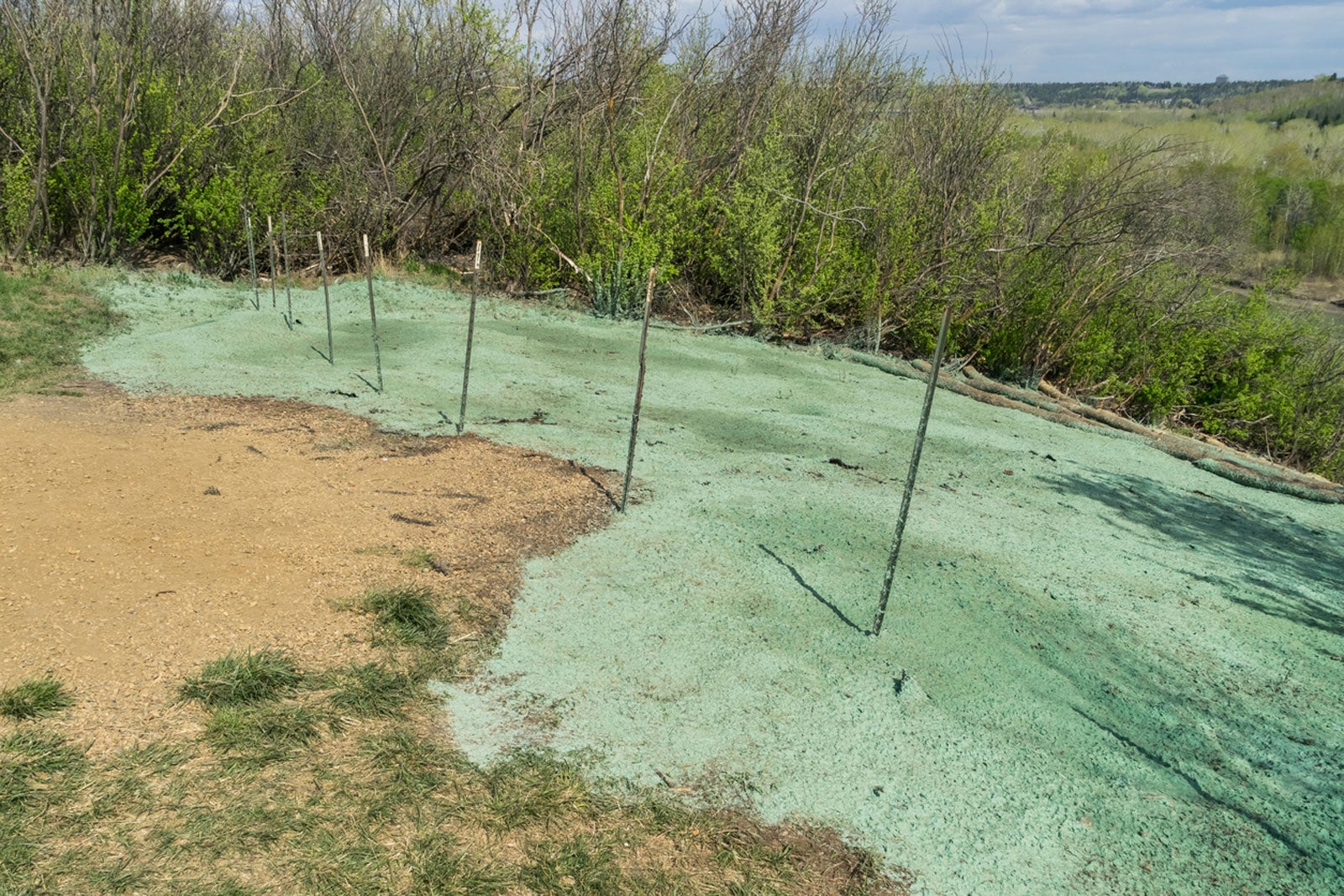What Is Hydroseeding: Learn About Grass Seed Spray For Lawns


What is hydroseeding? Hydroseeding, or hydraulic mulch seeding, is a way of planting seed over a large area. Compared to traditional methods, hydroseeding can save a tremendous amount of time and effort, but there are also some drawbacks to consider. Read on to learn some hydroseeding facts and how this method might help you establish a lawn.
How Hydroseeding Works
Hydroseeding involves the use of a high-pressure hose to apply seeds onto tilled soil. The seeds are in a water-based grass seed spray (slurry) that may contain mulch, fertilizer, lime, or other substances to get a lawn off to a healthy start.
The grass seed spray, which is often used to plant large areas such as golf courses and football fields, is often applied from a truck to ensure that the slurry is evenly mixed. However, it can also be applied by homeowners with a pressure sprayer.
Hydroseeding Facts: Hydroseeding a Lawn
Hydroseeding is often used to plant grass seed, but the technique is also implemented for wildflowers and groundcovers. This technique is especially useful for steep slopes and other difficult areas, and the grass will help to prevent erosion.
Hydroseeding is cost effective for large applications. However, it may be more expensive for smaller areas. As a general rule, hydroseeding is more expensive than traditional methods, but less expensive then sod. Grass seed spray is customizable. For instance, you can easily add lime if your soil is too acidic.
One disadvantage to hydroseeding a lawn is that the seed may not make complete contact with the soil. The newly planted lawn may need more irrigation for a longer period of time than a traditionally planted lawn.
Due to application of fertilizer in the slurry, a hydroseeded lawn is usually established much sooner than a traditional lawn and may be ready for mowing in about a month.
Sign up for the Gardening Know How newsletter today and receive a free copy of our e-book "How to Grow Delicious Tomatoes".

A Credentialed Garden Writer, Mary H. Dyer was with Gardening Know How in the very beginning, publishing articles as early as 2007.